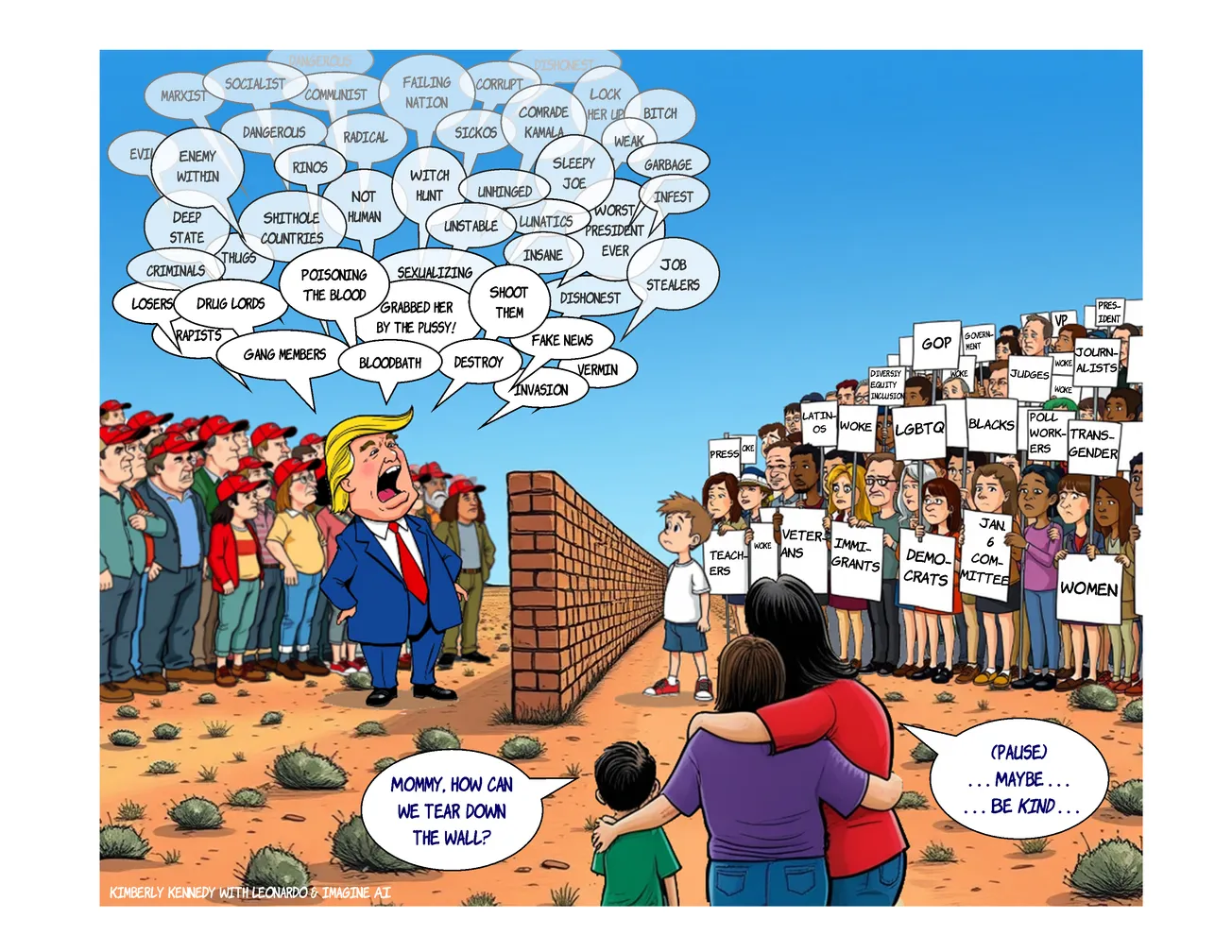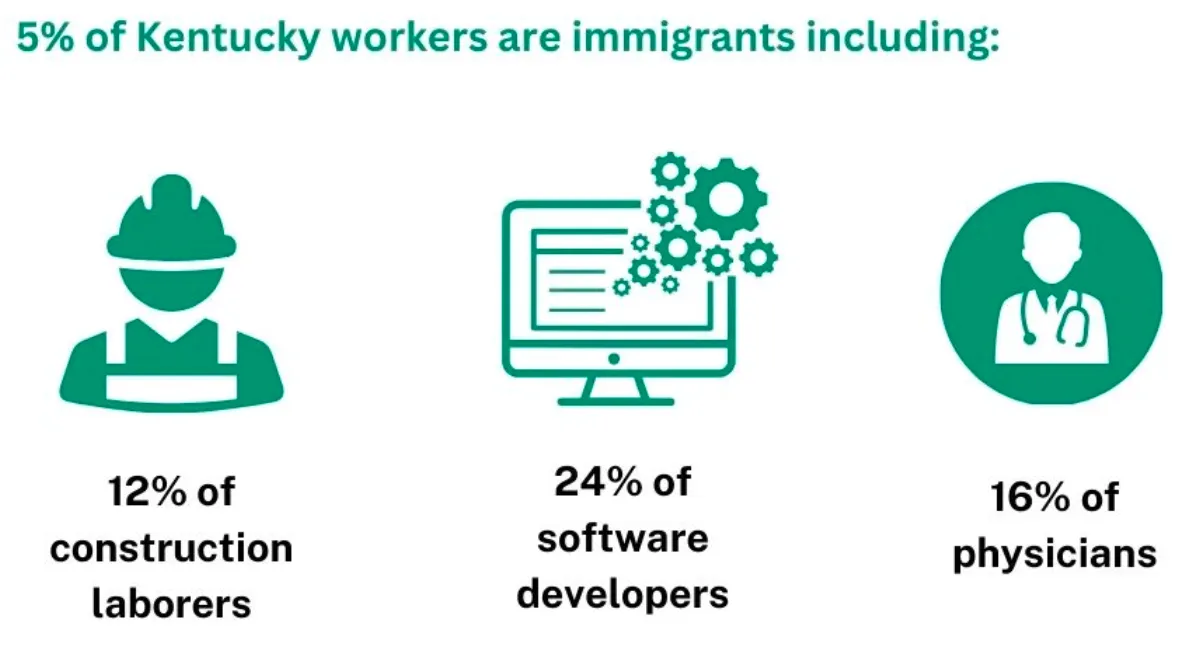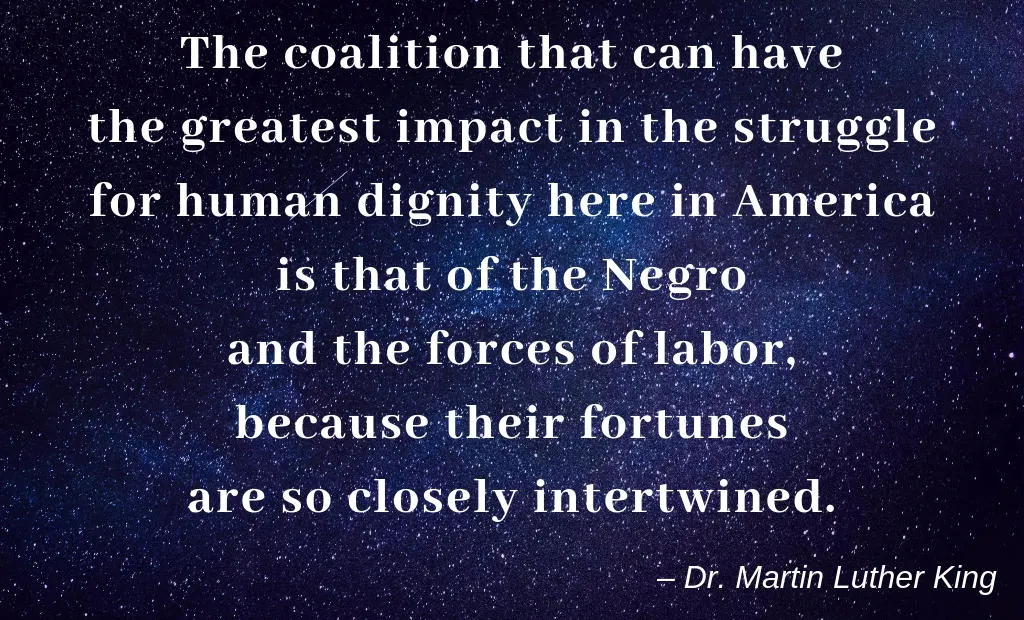Table of Contents
Whatever the outcome of the 2024 presidential election, there is one thing we can all agree upon:
America is deeply divided, and that’s not good for our (capital D) Democracy.
Nastiness, vilification, and “otherism” have become normalized. Violent rhetoric has adults and children afraid that people will take up arms to “take our country back.” What hope do we have at unity?
We all bear personal responsibility for this, starting by recognizing our own personal biases; I know I have them. What have you said about Democrats? about Trump or his followers? about immigrants, politicians, transgender or “woke” persons?
How did we get here—and is there anything we can do to heal the divide?
The Trump Effect
Meanness, disdain, contempt. Trump’s hate-filled torrents sound like schoolyard bullying — what we teach our kids not to do (and for Christians, are decidedly UN-Christian).
More important, they’re usually LIES. Hundreds of fact checks have concluded that Trump’s postulations about the threats posed by transgender persons, immigrants, journalists, poll workers, etc. are false. Thus the fear is frankly irrational.
The Gingrich Effect
When Newt Gingrich became the GOP Speaker of the House in 1995, he literally wrote the playbook for today’s partisan “Just Say No” politics. “He conceived of governing as war,” wrote Jennifer Senior of the New York Times, and used his tactics to effectuate “the annihilation of bipartisan comity.” His playbook includes positive words to use about compatriots and pejorative words for the opposition (like many in the cartoon); interestingly, it includes the word “liberal” (as in “freedom of thought”) in the derogatory column.
Most striking, however, is Gingrich’s pronouncement against compromise with Democrats. Why does this matter? Because if Democrats say, for example, that the sky is blue, Republicans will say, No it’s not, which goes beyond reason. Refusing to compromise signals that the opposition is your adversary – and that ideology is corrosive to democracy.
The Parent Effect
Our children see and hear what we believe, in our homes, at our dinner table, in print media on our countertops, on our televisions and broadcasting from our radios. If they consume “otherism,” they naturalize it. This is unwitting propaganda (I know, I am guilty too) that their developing brains don’t have the ability to differentiate. Are you willing to share (I try to) the other side’s opinion?
The Consequences
We’ve seen them: Divided neighborhoods. Personal attacks at City Council and School Board meetings. Facebook friends being “unfriended.” Family members not speaking to each other. People using hostile language they would not have formerly used. And so on.
More worrisome is that our children are being indoctrinated to continue this legacy.
Our kids of all ages are afraid. They come to us in tears, afraid of the election and its aftermath, of the violence they believe will come. They urge us to travel to places like Canada; how ironic: the country whose motto is Be Kind.
The Imperative
We have to stop trying to convince, coerce, bully, and legislate everyone in the country into thinking alike, because it is never ever going to happen, and it is perpetuating the rift that is destroying our Democracy. Instead, let’s stop the word war and take steps to restore democracy:
The principle of equality of rights (political, social, and economic), and fair and equal treatment and opportunity.
One of the strengths of democracy is that all are welcome to the table. Greatness comes from recognizing and incorporating the ideas and contributions of all people, not just a chosen few. Compromise is a compilation of the best of both sides and is greater than the sum of its parts because of the goodwill it generates.
Three Solutions:
- Call upon state and federal legislators to make laws that uphold — not restrict — democratic ideals, starting with Diversity, Equity, and Inclusion programs.
- Take someone of the opposite political persuasion out for coffee. Talk. Find common ground. Talk about ways to heal our divide.
- The easiest solution IS as simple as it sounds, and the lesson we teach our children:
Be KIND.
--30--
| Tip Jars |








